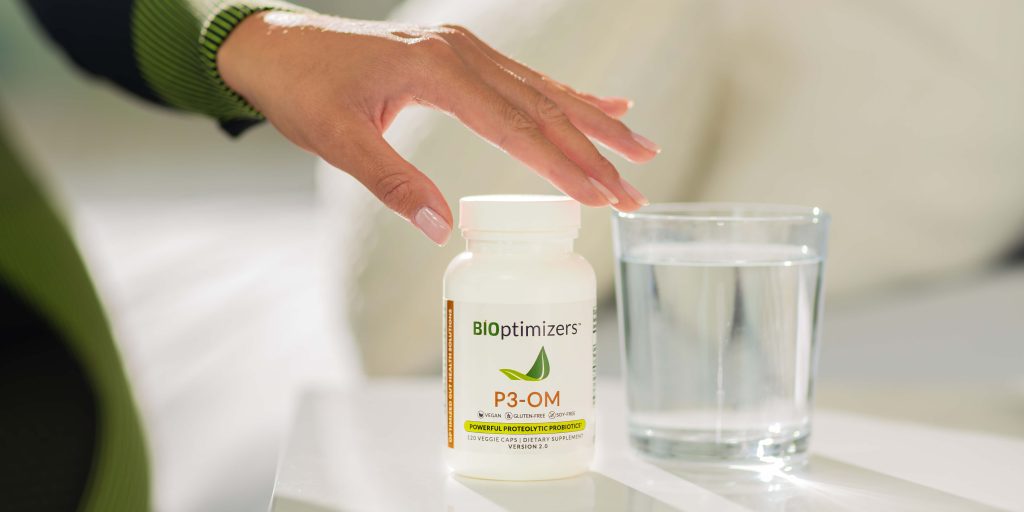Best Ways To Recover From Sleep Deprivation
In the last article, Part 1, we covered the most common sleep deprivation coping mistakes.
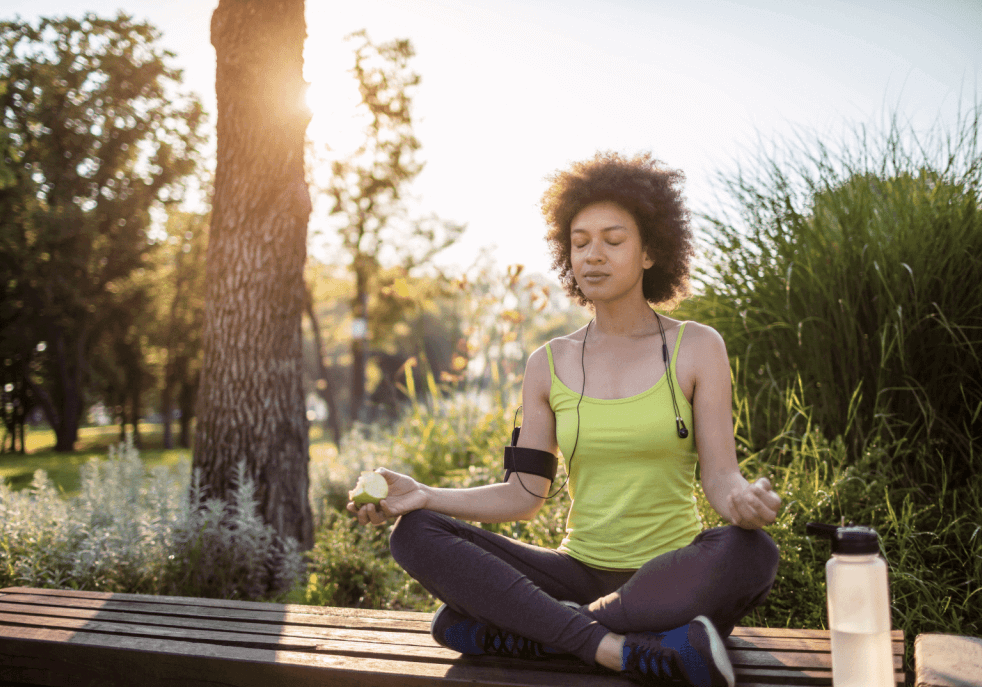
In this article, Part 2, let’s talk about the right ways to cope with it so that you can quickly return to optimal sleep for your best mood, performance, health, and body composition.
1. Get Sun Exposure In Your Eyes
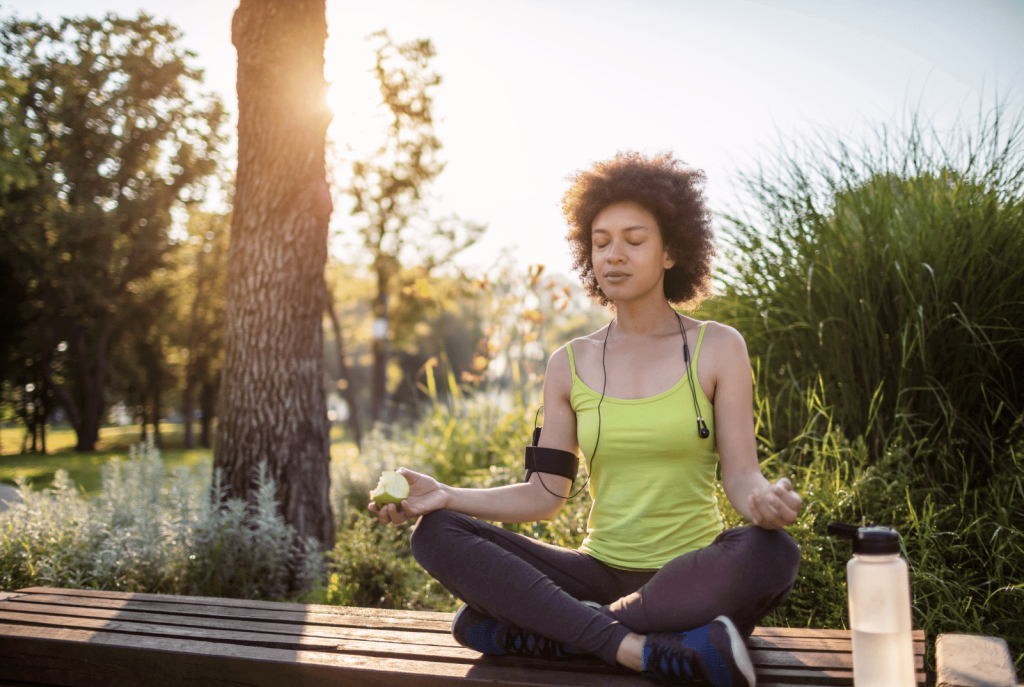
Sleep deprivation can throw off your circadian rhythm. Your circadian rhythm and homeostatic sleep drive help you sleep every night.
Natural sunlight is the strongest cue for setting our circadian rhythm and regulating our daily sleep patterns. Try to get outside and see natural sunlight, ideally in the morning. If you’re in a time crunch, you can at least sneak in a solid 5 minutes by flossing and brushing your teeth as you expose your eyes to sunlight.
Don’t stare directly at the sun, instead see the sun’s rays as it shines on trees, the side of a hill, or when it shines through clouds. If possible, wake up with the sun, even if it is covered with heavy clouds.
Regular household lights are not bright enough to set the circadian rhythm in motion. If you live in a place without consistent access to morning sunlight (e.g. Alaska) you may need to buy a light therapy device.
2. Take A Short Nap Before 3 PM
Long naps can impair your sleep schedules by affecting sleep drive. Sleep drive regulates sleep intensity, and gets stronger every hour you are awake as adenosine builds up in the brain.
Your cells break apart adenosine triphosphate (ATP) as a way to obtain energy and perform their tasks. When ATP is broken down, one of its components (adenosine) begins to accumulate in the brain and makes you feel tired.
Drinking caffeine blocks adenosine from binding to brain cells for a while. This is why many of us drink more than one cup of coffee throughout the day and promote as much wakefulness as possible.
If you take a short nap and wake up before 3pm, you’ll still leave enough time for adenosine to build up for your normal bedtime. A person that takes a nap past 3pm (and wakes up right before dinner at 6pm) will probably have to wait past midnight for their body’s accumulate enough adenosine to feel tired and fall asleep.
A 30 minute midday nap is the best for refreshing learning and improving mood without affecting sleep drive. Keep in mind that it takes about 10 to 15 minutes to fall asleep, so aim for a 40 to 45 minute nap session. It also minimizes sleep inertia, so you can still wake up and perform.
3. Keep A Consistent Sleep Schedule
Go to bed and wake up at the same time everyday, especially on weekends. An inconsistent sleep schedule forces your body to spend energy on recovering from sleep deprivation and adapting hormones to a new circadian rhythm. A consistent sleep schedule avoids this added stress and instead allows the body to focus on rejuvenating and repairing the brain and body.
4. Find A Relaxing Routine Before Bed
For some people, this means:
- Reading a book
- Meditating
- Calming breathwork
- A warm bath
- Or listening to relaxing music
A relaxing routine can help activate your body’s parasympathetic nervous system. This is the part of the nervous system that slows your heart rate and breathing and promotes rest, relaxation, and the digestion and absorption of nutrients.
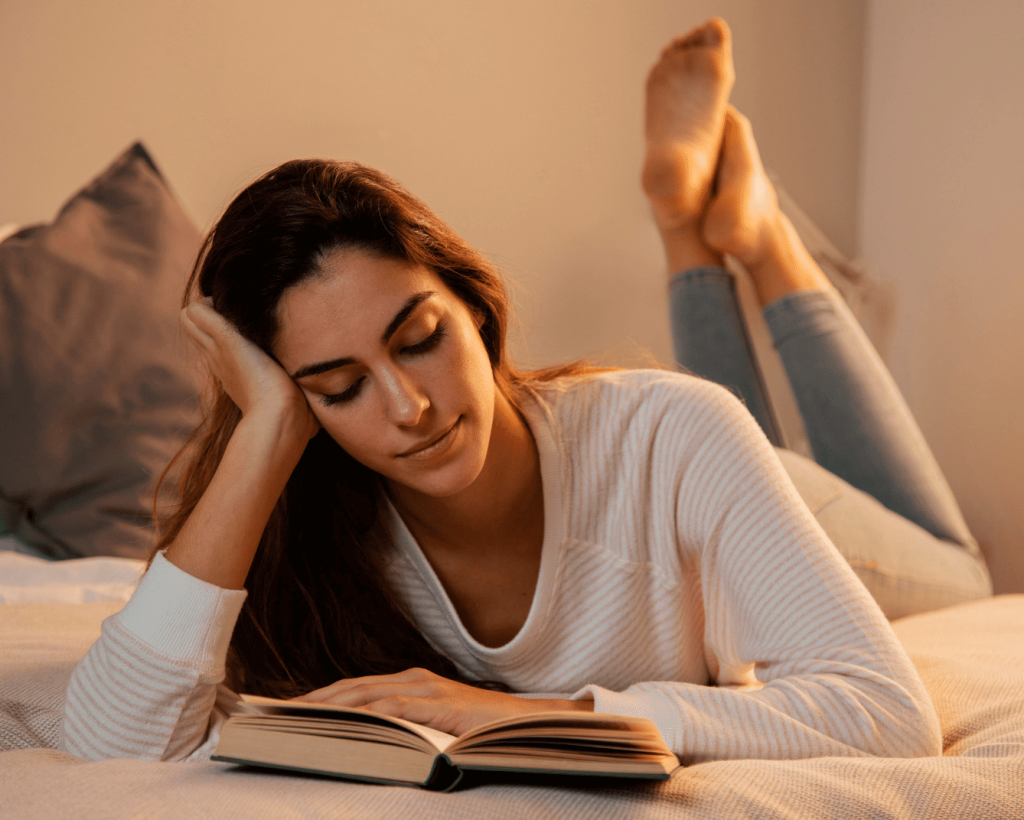
5. Dark, Cool, Comfortable Bedroom
These things will make a lot of sense if you see it through the eyes of your hunter-gatherer ancestors. When the sun went down, darkness followed and signaled to their bodies that the time to sleep was near.
Darkness is one of the cues the brain relies on to secrete melatonin. When the sun goes down, the temperature also falls a few degrees (depending on where you live). This drop in temperature was another cue your ancestors’ bodies relied on to confirm that it was time to sleep.
This is one of the reasons it’s easier to fall asleep in a cool room near an ocean breeze, instead of a hot, humid room near a swamp. A comfortable bedroom is a pretty good sign to the body that it’s a safe place to relax and go to sleep. An uncomfortable bedroom adds unnecessary stress to your body as it tries to recuperate from a long day.
6. Try These Supplements
Sleep deprivation temporarily increases oxidative stress and cortisol in your body. Your immune system is also off-balance, while your ability to fight off germs goes down. Here are a few supplements that can work as temporary band-aids for minor cognitive performance deficits from occasional sleep deprivation.
Keep in mind, however, there is currently no study on how these supplements mitigate traffic or work accident risks due to sleep deprivation. Therefore, you cannot rely on these to drive or operate machineries safely.
Hydrogen-Rich Water
In one small study, sixteen men and women in their early and late 20’s were sleep deprived for 24 hours. Those that drank hydrogen rich water had better attention spans and performed better on tests than those that drank regular water. Hydrogen water seemed better or comparable to caffeine, without interfering with sleep or causing withdrawal symptoms later. In fact, hydrogen water increases deep sleep.
Mental Reboot PM
Mental Reboot PM is formulated to support the brain’s natural restorative processes during sleep. The following ingredients may help mitigate some negative health and performance effects of occasional sleep deprivation. Take it at night before you go to sleep.
Milk Thistle is an herb with neuroprotective and detoxification-supporting herbs. Sleep deprivation increases oxidative stress that makes you feel tired and groggy. In principle, milk thistle can counteract some of these.
NAC (or N-Acetyl Cysteine) is a very important amino acid precursor to glutathione. Glutathione is referred to by many scientists as the “Master Antioxidant” due to its ability to regenerate other antioxidants (such as vitamins C & E).
In 2020, scientists studied severely sleep deprived flies and mice and measured the damage caused by free radicals. Sadly, the sleep deprivation was so severe that many of these animals died prematurely. The exact mechanism that sleep restriction caused death remains unknown.
Scientists found that free radicals increased significantly and accumulated, especially in the gut, after sleep deprivation. They observed that NAC could extend the survival of these animals and allow them to have a near normal lifespan even with chronic sleep deprivation
We still don’t know how much of this applies to humans, but the study suggests that boosting glutathione may mitigate some oxidative effects of sleep deprivation.
Chlorella is a type of green algae with valuable phytochemicals that can contribute positively to mood and sleep. Chlorella’s compounds have been found to exert neuroprotective, antioxidant, and inflammation-balancing effects.
How Long Does It Take To Fully Recover From A Night Of Sleep Deprivation vs. Chronic Sleep Deprivation?
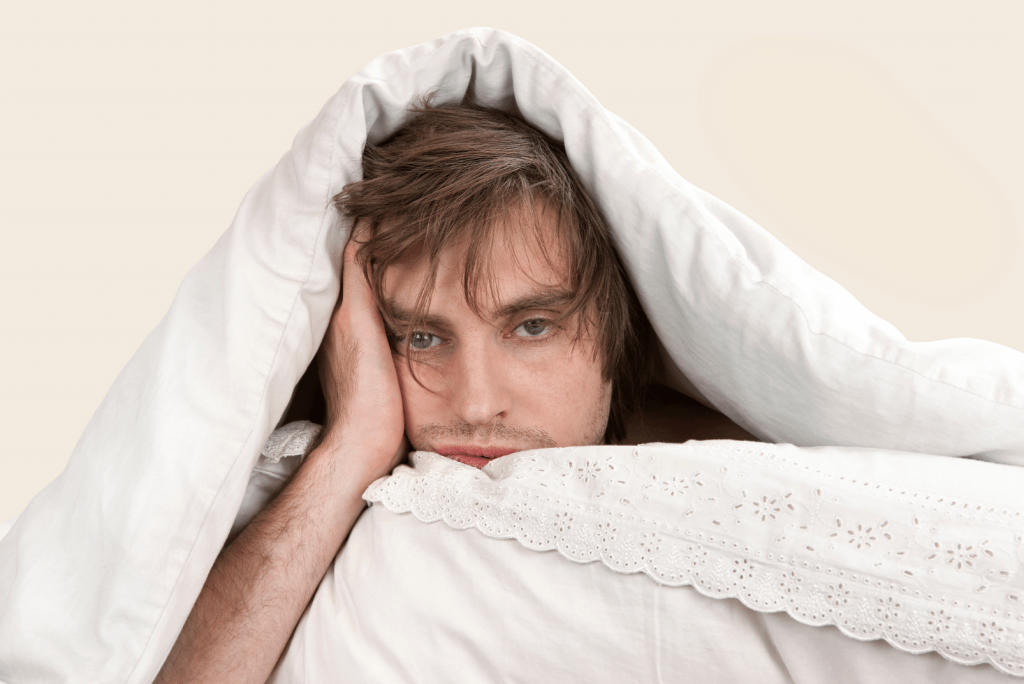
Research has many answers to this question. One small study examined 18 healthy 46 – 55 year olds. Participants either lost one entire night’s worth of sleep or slept for only 4 hours for five days straight. These individuals’ feelings of sleepiness and cognitive performance returned to normal with just eight hours of recovery sleep the day after their last day of sleep restriction.
It is important to note that the secretion of sleep-related hormones changes in normal aging and sleep duration tends to decrease as we age. So the findings of this study may not be applicable for younger adults, who typically need more sleep.
Another study looked at the brain waves of 12 healthy males (20-36 years old) that slept for only 4 hours a day for seven days straight. Their brain waves returned to normal levels after 12 days of normal rest, which suggests that recovery processes are slow and complex for the body to adjust to.
It’s important to know that “catch up sleep” may not be enough to fully prevent or allow for a full recovery from the consequences of sleep deprivation throughout the week. On a slight upside, “Catch-up sleep” has been associated with reduced adverse consequences of insufficient sleep, such as poor blood sugar control and all-cause mortality.
According to Dr. Matthew Walker– a professor of neuroscience and psychology at the University of California, Berkeley– after just one night of sleep restriction in adults, it would take four days for brain waves to return to normal.
In his book, Why We Sleep: The New Science Of Sleep And Dreams, he states that regardless of the amount of recovery opportunity we give ourselves after being sleep deprived, the brain never comes close to getting back all the sleep it has lost.
Dr. Walker emphasizes that, “[…] humans and all other species [that sleep] can never sleep back that which we have previously lost.” Especially when “Neither naps nor caffeine can salvage complex functions of the brain, including learning, memory, emotional stability, complex reasoning or decision making.”
Hopefully, this article provided you with some information to optimally recover from working extra-hours, studying late for an exam, or dealing with a late-night emergency. In summary:
- Avoid sleeping in or taking multi-hour naps
- Limit large meals, caffeine, and alcohol
- Exercise earlier in the day
- Remove distractions from the bedroom
- Avoid laying in bed awake for long periods of time
- Find your ideal sleep duration
- Expose your eyes and brain to natural sunlight
- Try supplements like Mental Reboot PM and hydrogen water instead of caffeine
- Optimize your sleep environment
- Module 2. Circadian rhythms. Cdc.gov. Published April 2, 2020. Accessed May 6, 2023. https://www.cdc.gov/niosh/work-hour-training-for-nurses/longhours/mod2/13.html
- Reichert CF, Deboer T, Landolt HP. Adenosine, caffeine, and sleep-wake regulation: state of the science and perspectives. J Sleep Res. 2022;31(4):e13597. doi:10.1111/jsr.13597
- Lazarus M, Shen HY, Cherasse Y, et al. Arousal effect of caffeine depends on adenosine A2A receptors in the shell of the nucleus accumbens. J Neurosci. 2011;31(27):10067-10075. doi:10.1523/JNEUROSCI.6730-10.2011
- Leong RLF, Lau T, Dicom AR, Teo TB, Ong JL, Chee MWL. Influence of mid-afternoon nap duration and sleep parameters on memory encoding, mood, processing speed, and vigilance. Sleep. 2023;46(4). doi:10.1093/sleep/zsad025
- Brain basics: Understanding sleep. National Institute of Neurological Disorders and Stroke. Accessed May 6, 2023. https://www.ninds.nih.gov/health-information/public-education/brain-basics/brain-basics-understanding-sleep
- Module 7. Napping, an Important Fatigue Countermeasure, nap duration. Cdc.gov. Published April 2, 2020. Accessed May 6, 2023. https://www.cdc.gov/niosh/work-hour-training-for-nurses/longhours/mod7/05.html
- Eastman SR. Getting a good night’s sleep. Provider. 1995;21(1):74, 77. Accessed May 6, 2023. https://www.nia.nih.gov/health/infographics/getting-good-nights-sleep
- Jerath R, Beveridge C, Barnes VA. Self-regulation of breathing as an adjunctive treatment of insomnia. Front Psychiatry. 2018;9:780. doi:10.3389/fpsyt.2018.00780
- Tindle J, Tadi P. Neuroanatomy, Parasympathetic Nervous System. StatPearls Publishing; 2022.
- Todorovic N, Zanini D, Stajer V, Korovljev D, Ostojic J, Ostojic SM. Hydrogen-rich water and caffeine for alertness and brain metabolism in sleep-deprived habitual coffee drinkers. Food Sci Nutr. 2021;9(9):5139-5145. doi:10.1002/fsn3.2480
- Surai PF. Silymarin as a natural antioxidant: An overview of the current evidence and perspectives. Antioxidants (Basel). 2015;4(1):204-247. doi:10.3390/antiox4010204
- Shang F, Lu M, Dudek E, Reddan J, Taylor A. Vitamin C and vitamin E restore the resistance of GSH-depleted lens cells to H2O2. Free Radic Biol Med. 2003;34(5):521-530. doi:10.1016/s0891-5849(02)01304-7
- Vaccaro A, Kaplan Dor Y, Nambara K, et al. Sleep loss can cause death through accumulation of reactive oxygen species in the gut. Cell. 2020;181(6):1307-1328.e15. doi:10.1016/j.cell.2020.04.049
- McCarthy B, O’Neill G, Abu-Ghannam N. Potential psychoactive effects of microalgal bioactive compounds for the case of sleep and mood regulation: Opportunities and challenges. Mar Drugs. 2022;20(8):493. doi:10.3390/md20080493
- Philip P, Sagaspe P, Prague M, et al. Acute versus chronic partial sleep deprivation in middle-aged people: differential effect on performance and sleepiness. Sleep. 2012;35(7):997-1002. doi:10.5665/sleep.1968
- Li J, Vitiello MV, Gooneratne NS. Sleep in normal aging. Sleep Med Clin. 2018;13(1):1-11. doi:10.1016/j.jsmc.2017.09.001
- Bougard C, Gomez-Merino D, Rabat A, et al. Daytime microsleeps during 7 days of sleep restriction followed by 13 days of sleep recovery in healthy young adults. Conscious Cogn. 2018;61:1-12. doi:10.1016/j.concog.2018.03.008
- Kim JJ, Hwang IC. Weekend catch-up sleep is associated with reduced metabolic derangements in Korean adults. Neurol Sci. 2021;42(2):735-737. doi:10.1007/s10072-020-04805-8
- St-Onge MP, Grandner MA, Brown D, et al. Sleep duration and quality: Impact on lifestyle behaviors and cardiometabolic health: A scientific statement from the American heart association. Circulation. 2016;134(18):e367-e386. doi:10.1161/CIR.0000000000000444




